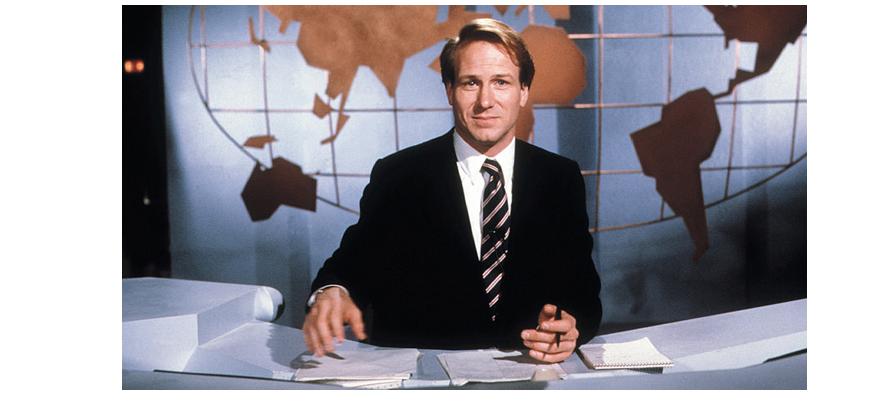How a Nigerian News Broadcast Spoilt My Dinner by Solace Chukwu
You know what really grinds my gears about the news? Let’s say it’s 8:00pm. After a long, tiring day, you settle down on your couch with a steaming plate of porridge (insert: eba, fufu, iyan with that exotic, fish-laden soup you like so much, or whatever constitutes supper in your household) and flick over to a local news channel to catch up on happenings in the nation and the world. You are just in time to catch the headlines but as always, the TV channel is a study in tardiness, not hesitating to feature commercials till 8:05pm.
The ugly theme music, whose sound quality is questionable at best, is still ringing in your ears as the news anchor reads out the headlines. Top of the news pile for the day: “The Anglican Archbishop of ‘xyz’ Diocese Urges Nigerians to Eschew Violence and Seek the Unity of the Nation”; swiftly followed by “The Imam of ‘xyz’ Mosque Has Urged Muslim Faithful to Imbibe the Virtues of Ramadan.” At this point, your food begins to lose its appeal. The lights come up in the studio and the anchors – one male, one female – beam for the cameras. The male anchor is dressed in a ridiculously stiff agbada, the female in ceremonial aso ebi and an unwieldy gele. I do not presume that this is everyone’s exact experience with the 8 o’clock news (oops! This does make it seem as though I am picking on one particular TV station, no?). In fact, I am quite sure that 95 per cent of the population believes the scenario I described above is perfectly fine. But let me walk you through all the things wrong with it. First off, what is news? ‘News’ refers to new information; reports of interesting world events. I know I may only be a layman, but how is a clergyman’s address to his congregation newsworthy? His announcement is not novel enough to be of any particular interest. He is simply doing what is expected of him: using his religious office to champion social and civic responsibility. If we say that such a proclamation is worthy of the name “news,” then what is next? “Fred’s Father Admonishes Him to Acquit Himself Properly in Public”? “Jumoke’s Class Teacher Urges Her to Read for Her Examinations”? We have made a caricature of real news. There are countless newsworthy events happening around us daily. Why then do we condone the complacent laziness of the very people who we expect to keep us abreast? To think there are reporters paid to do this! It is much worse during festive holidays. “Credible” news outlets send reporters to fun spots to gauge public feeling about the day’s celebration, and have the temerity to include such trivial events in the day’s top news. Even more disturbing: who picks the wardrobe for these anchors? Since when does a suit not suffice? Before anyone comes at me with protestations of “culture”, let us think this through objectively. There is a distinction between official attire and ceremonial attire. Agbada and aso ebi are ceremonial wear worn to parties and weddings. Since our culture has no alternative official clothing for work environments, reason dictates that we stick with to universal official wear, i.e. a suit. Let us not let our misplaced sense of tradition cloud common sense. After all, electronic news media is not indigenous to Nigeria. Imagine a CNN news anchor appearing in black tie: would you not be mystified? Anchors are there to deliver the news. With that objective in mind, the more understated their dress is, the better. What is important is what they are saying, not their appearance. It stands to reason that their attire, mannerisms and inflection should deflect the attention of the listener to the information they are disseminating, right? Who wants to spend the entire duration of the news bulletin ogling impossibly shaped gele?
Do you think Nigerian news broadcasts need to improve? Share your thoughts in the comments.
Image: A screenshot of William Hurt from the film Broadcast News via





